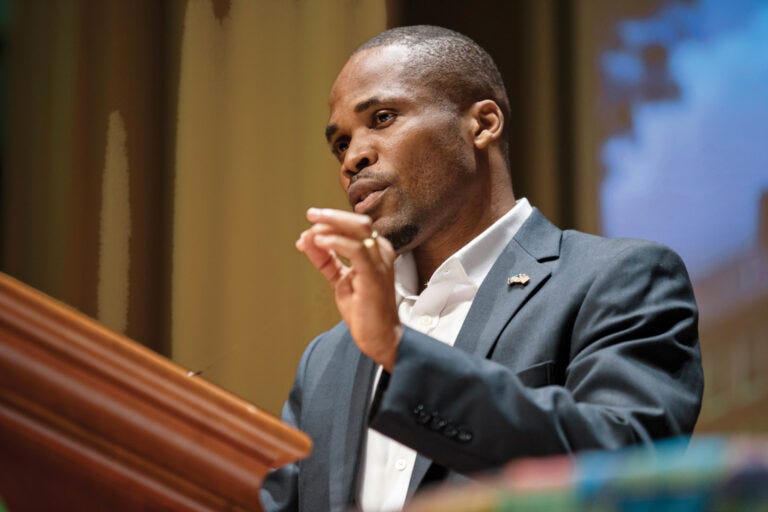Energy ambitions cannot be outsourced
Big thinking from China has lessons for Africa's development plans
Gyude Moore has seen it all. He was a child refugee in Liberia who found his way to college in Kentucky, then Georgetown University, and then he returned home after the civil war to help rebuild, first as a close aide of President Ellen Johnson Sirleaf and later as Minister for Public Works. Gyude is now a leading public intellectual on Africa’s economic future.
Here’s a taste of his brilliant piece in Semafor today penned from Beijing, where he’s teaching.
The Chinese have historically avoided conflating their current circumstances with their goals. They have never outsourced their ambitions to others, even when dependent on external actors for capital and expertise.
If there is one big thing we, Africans, can learn from our Chinese cousins, it is that we must wrest our ambitions for an expected future from external “partners” — be they multilateral institutions, Europeans, Americans, or Chinese.
Full disclosure, Gyude is a longtime colleague, friend, and now a board member at my organization. I can’t think of a conversation with him where I did not learn something new. I especially appreciate that Gyude, while unfailingly polite and always laughing, is brutally honest. His latest short sharp dispatch is exactly that.
I recently visited Chongqing, in southwestern China, and rode the high-speed rail from there to Yichang in Hubei Province to see the Three Gorges Dam. The train traverses interminable tunnels as it barrels between mountains soaring above deep canyons and ravines. And it occurred to me that these are exactly the kinds of projects that the World Bank and its sister organizations would immediately dismiss as unviable if the average African country dared to even imagine them.
Gyude shares specific examples from Liberia’s (fairly modest) plans for a 4-lane highway and a power plant that were squelched by the donors for being too aspirational. He concludes:
The size of one’s economy today is not a definitive statement of one’s potential. And herein lies the great danger of outsourcing one’s ambition to others.
Gyude’s insights seem especially important for the continent’s energy policy:
Planning for poverty guarantees failure. If modern energy continues to be defined as a couple of lightbulbs, we’ll be consigning millions of people to perpetual poverty. Let’s aim higher.
Success requires ambition at scale. Aiming higher means setting energy targets aligned with industrial and development goals and then making the investments that match. Economic transformation, in China and everywhere, requires a lot more energy.
Africans will have to do it. African leaders cannot continue to be hamstrung by the narrower (and in some cases, counterproductive) priorities of its development partners.
Ethiopia is one country that has not allowed the low ambition of the donors — or regulatory barriers at the multilaterals — to stand in the way of its big energy projects to help reach its national vision. It’s no coincidence that both Gibe III and the Grand Ethiopian Renaissance Dam were built without Western support.
I hope Gyude’s message resonates widely.



